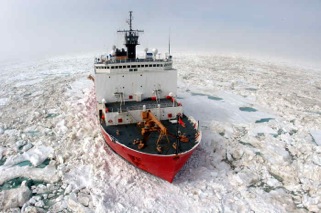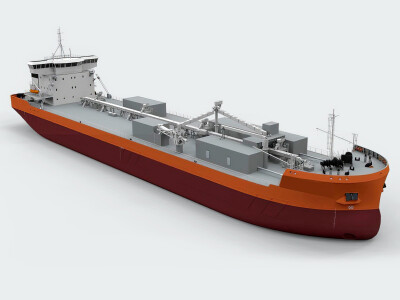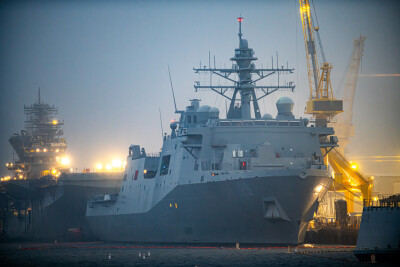A late summer Arctic voyage by the U.S. Coast Guard icebreaker Healy will carry a crew of 150, nearly one-third of them scientists studying geochemical changes in the ocean at the top of the world.
The Coast Guard hosted a press briefing on the expedition last week at its Seattle station as scientific equipment was being packed and loaded on board. The Healy’s annual summer research expedition from Aug. 7 to Oct. 12 is notable this year for involving science teams from not only the U.S. but also Canada and Germany.
Headed by chief scientist Dave Kadko of Florida International University, the expedition is part of the ongoing GEOTRACES study of how carbon changes in the environment, geochemical cycles, and ecosystems in the Arctic are responding to rapidly changing climate conditions.
“This marks the first time that grand-scale, coordinated geochemical measurements will be performed in the Arctic Ocean,” according to a university description of the project. “Data gathered will help model feedback mechanisms and future trajectories of Arctic change, and measurements will establish a baseline against which future conditions can be compared.”
For the Coast Guard, this summer’s operations will include testing improved communications and navigation, search and rescue exercises and ship-to-shore transfer improvements, Coast Guard officials say. There’s also new testing of research hardware, including an undersea glider and an airborne drone that will extend the reach of scientists’ sensors.
Commissioned in 2000, the 420’x82’x29’3” Healy is the Coast Guard’s most technologically advanced icebreaker and will be for some time to come. There is still no consensus in Washington on building new Arctic icebreakers to keep up with expanded shipping, energy development and maritime activity in the high latitudes.
The Healy has more than 4,200 sq. ft. of science lab space. At 16,000 tons displacement, the Healy can break 4'6" of ice at a continuous 3 knots, and get through ice up to 8' thick with backing and ramming.





